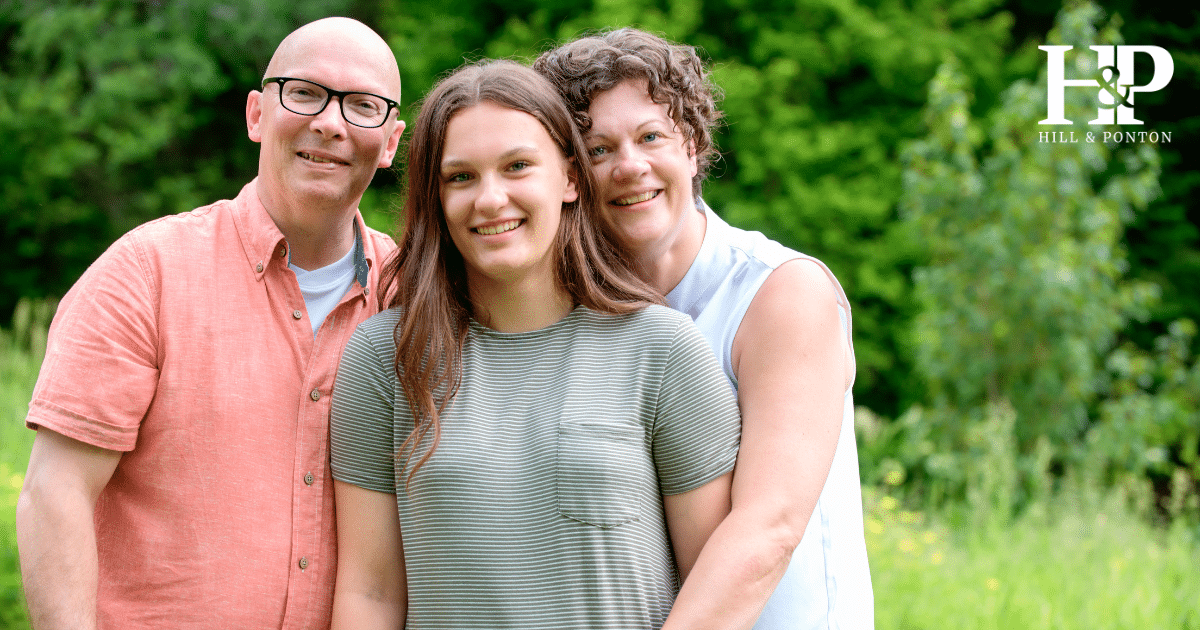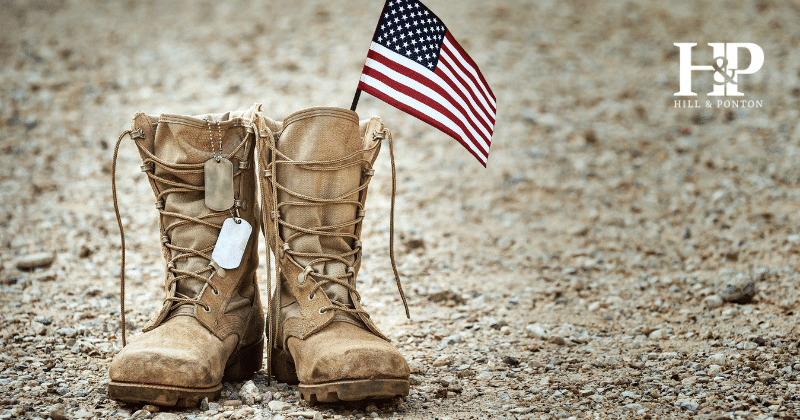A benefit that is often not widely discussed or known as traditional Department of Veteran Affairs (VA) disability benefits for veterans and you, the dependents, is Dependency and Indemnity Compensation, otherwise known as DIC benefits.
These benefits are different because unlike other VA benefits that are focused on the service member, DIC is designed specifically for survivors, in an attempt to help with the loss.
But who exactly qualifies for this benefit?
Survivors eligible for DIC benefits include spouses, an eligible child and parents who were financially dependent on the veteran.
Each of you face unique challenges in the wake of your loved one’s passing, and the VA created DIC benefits to help mitigate some of these and ensure the sacrifice of your veteran is never forgotten and you receive the support you deserve.
Want to learn more about DIC benefits in a video by our attorneys? Check it out below.
Eligibility Criteria: Is Your Veteran Qualified?
Trying to navigate criteria for eligible survivors for DIC benefits can seem a little daunting, but having a grasp of the basics is the first step!
Here’s a brief breakdown of your VETERANS qualifications:
- Service Connection: Your deceased veteran must be directly linked to or complicated by a service-connected disability or disease.
- Active Duty: If your veteran died while on active duty military service, active duty for training, or inactive duty training, the surviving dependent is usually granted DIC. They were not discharged for willful misconduct.
- Disability Rating: Veterans who passed away from non-service-related injury must have had a VA disability rating of 100% (totally disabled) for any of the following:
- At least 10 years immediately preceding death.
- Since the Veteran’s release from active duty and for at least 5 years immediately preceding death.
- At least one year immediately preceding death if the veteran was a former prisoner of war (POW).
Am I Eligible for DIC Benefits?
Eligibility for DIC benefits also varies depending upon your relationship with your veteran and if they had a service-connected disability.
Below, we’ve highlighted the basics.
For more information, check out our dependent-specific guides.
Spouses of Veterans
- You must have been married to the veteran before their discharge
- Or, at least one year prior to their time of death
- Remarriage can affect eligibility, depending on your age and the date
For more information, click below to visit our Widows DIC Guide

Dependent Children of Veterans
- Must be under 18, or under 23 if attending a VA-approved school, and unmarried
- Certain conditions also apply to those permanently incapable of self-support due to a disability before the age of 18
For more information, click below to visit our Children DIC Guide

Parents of Veterans
- Must be financially dependent on the veteran
- Income limits apply and benefits are adjusted based on financial situation
For more information, click below to visit our Parents DIC Guide

A Comprehensive List of All Survivor Benefits
Below is a comprehensive list of all of the basic benefits for survivors of a veteran.
Dependency and Indemnity Compensation (DIC)
This monthly benefit is for the spouse, children, or parents of a veteran who passed after January 1, 1957, due to service-related activities or disabilities. Eligibility includes:
- Death during active duty or related training.
- Death caused by a service-connected disability.
- If not directly caused by a disability, the veteran must have been totally disabled by service-connected issues at death, continuously for 10 years preceding death, 5 years post-discharge, or for 1 year as a former prisoner of war.
Death Pension
Awarded to the spouse or children of a veteran with honorable wartime service, not related to their death. It’s income-regulated, intended for low-income survivors.
Aid & Attendance and Housebound Benefits
Additional monthly payments for survivors needing regular personal aid or who are permanently housebound.
Survivor Benefit Plan (SBP): A monthly annuity paid to survivors if the veteran opted into this plan, offering up to 55% of the veteran’s retirement pay.
Death Gratuity
Available for survivors if the veteran died during service or related training, within 120 days post-discharge from a service-related disability.
Health Care (CHAMPVA)
Health insurance for the spouse or child not eligible for TRICARE but whose veteran died from a service-connected issue or was totally disabled by it at death.
Education and Training Benefits
- Fry Scholarship: Offers GI Bill benefits to spouses and children of those who died in line of duty post-9/11.
- Survivors’ and Dependents’ Educational Assistance (DEA): For education and training of a veteran’s spouse and children, with specific eligibility based on the veteran’s service-related death or disability.
VA Home Loan Guaranty
For un-remarried surviving spouses under specific conditions related to service-connected disabilities.
No-Fee Passports
For visiting graves or memorial sites in American military cemeteries abroad.
Burial Benefits
Veteran burial benefits are designed to honor the service and sacrifice of veterans and provide support to their families at a time of loss.
These benefits are available to eligible veterans, their spouses, and dependents, offering several key services and entitlements.
National Cemetery Burial: Veterans and eligible family members can be interred in one of the VA’s national cemeteries. This service includes the opening and closing of the grave, perpetual care, provision of a government headstone or marker, a burial flag, and a Presidential Memorial Certificate, all at no cost to the family. The service ensures that the veteran’s and their eligible family members’ final resting places are maintained and honored perpetually.
Spouse and Dependent Burial: In addition to the veteran, spouses and dependents are also eligible for burial in a national cemetery. This includes burial alongside the veteran and inscription of the spouse’s or dependent’s names, along with their birth and death dates, on the veteran’s headstone. These services are provided at no additional cost to the family, ensuring that the legacy of the veteran as well as their immediate family is preserved.
Private Cemetery Benefits: If a veteran is buried in a private cemetery, the family can still receive certain benefits from the VA. These include a government-provided headstone or marker, a burial flag, and a Presidential Memorial Certificate to honor the deceased’s service. Additionally, the VA may contribute towards some of the burial and funeral expenses, depending on the circumstances surrounding the veteran’s death and eligibility criteria.
State Veteran Cemeteries: Many states operate their own veteran cemeteries, which may offer similar benefits as national cemeteries. Eligibility for burial in these state facilities may include residency requirements and are often designed to provide a dignified final resting place closer to the veteran’s home.
Additional Considerations: It’s important for families to know that while many of the services related to burial in national and state veteran cemeteries are provided at no cost, there might be other funeral expenses that are not covered by the VA. Families should check specific eligibility criteria and what is covered ahead of time to plan appropriately.
These burial benefits affirm the nation’s gratitude for the sacrifices made by veterans and their families, providing them with dignified recognition and lasting memorials.
What is the 8 Year Rule for DIC Benefits?
If the veteran was rated as “totally disabled” for 8 continuous years immediately before their death, and the spouse was married to the veteran for those same 8 years, the spouse may be eligible for additional DIC benefits.
How are DIC rates determined and how often do they change?
DIC rates are set by Congress and usually change yearly, based on cost-of-living (COLA) adjustments. For current DIC rates, visit the VA’s official DIC rates page.
Cassandra Crosby, an Accredited Agent and claims advocate for Matthew Hill & Shelly Mark’s teams, reviewed the information provided in this post.




